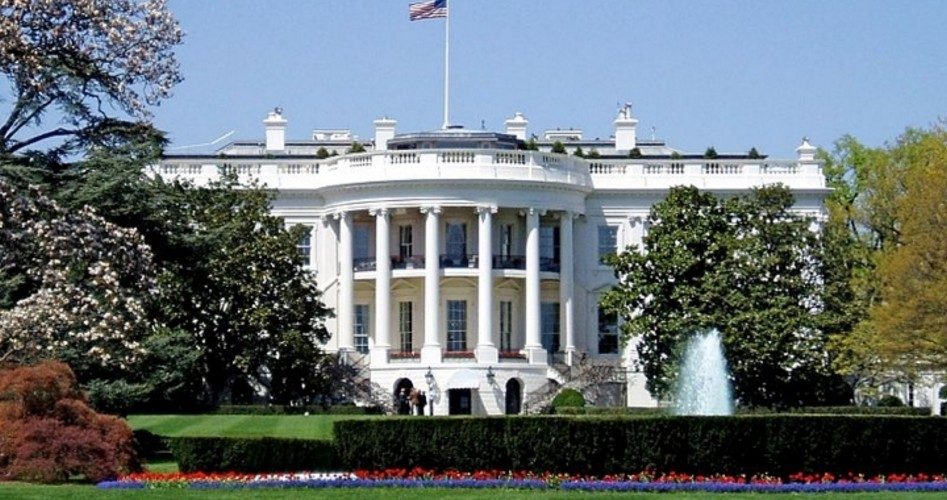
Insisting that the United States is still “a nation of laws,” a federal judge in Washington, D.C., Friday sharply challenged the Obama administration’s claim that the president’s decision to target Americans overseas for killing by drone strikes may not be subject to judicial review.
“Are you saying that a U.S. citizen targeted by the United States in a foreign country has no constitutional rights?” Judge Rosemary M. Collyer asked Brian Hauck, a deputy assistant attorney general at a hearing in U.S. District Court. “How broadly are you asserting the right of the United States to target an American citizen? Where is the limit to this?”
The hearing was on a suit filed by Nasser al-Awlaki, father and grandfather of a man and his teenage son killed in separate drone strikes in Yemen, and Sara Khan, mother of drone-strike victim Samir Khan, a North Carolina man who was also killed in Yemen. Anwar al-Awlaki, a Muslim cleric reputed to be a top al-Qaeda operative, was killed, along with Khan when a drone-fired missile struck the vehicle in which they were traveling in Yemen on September 30, 2011. Anwar’s son, 16-year-old Abdulrahman al-Awlaki, was killed in another drone attack two weeks later. The elder Awlaki was the only one of the three who was deliberately targeted, according to U.S. officials. His son was killed by a strike intended for a terrorist who was not present, officials said. Both Awlakis, though residing in Yemen at the time, were U.S. citizens, having been born in the United States.
Though the names on the president’s “kill list” of suspected terrorists remain a government secret, Anwar al-Awlaki had been rumored to be a target for months before the fatal strike, carried out by Joint Special Operations Command under the direction of the Central Intelligence Agency. Nasser al-Awlaki, a former government official in Yemen who was educated in the United States as a Fulbright scholar, sought with the assistance of the American Civil Liberties Union (ACLU) and the Center for Constitutional Rights to halt the planned killing of his son, challenging in federal court the Obama administration’s authority to execute a U.S. citizen, absent any legal proceedings, for alleged terrorist activities.
“The court dismissed the case, saying that I did not have standing to sue on my son’s behalf and that the government’s targeted killing program was outside the court’s jurisdiction anyway,” Awlaki wrote in an op-ed article in last Wednesday’s New York Times.
Awlaki said he learned of his grandson’s death from news reports on the morning after he was killed, along with “at least five other civilians,” while eating dinner at an open-air restaurant in southern Yemen. Local residents told him the boy’s body was blown to pieces, he said. Attorney General Eric Holder’s explanation that Abdulrahman was not “specifically targeted” raised more questions than it answered, Awlaki said.
“The government has killed a 16-year-old American boy,” Awlaki wrote. “Shouldn’t it at least have to explain why?”
The suit heard Friday, claiming the rights of the drone victims were violated, was filed late last year against four men who were in charge of the relevant military and intelligence agencies at the time of the killings: former CIA Director David Petraeus, Former Defense Secretary Leon Panetta, and Admiral William H. McRaven and Lieutenant Gen. Joseph L. Votel, who served consecutively as head of the Joint Special Operations Command.
Hauck, representing the Justice Department, argued in court that there is no role for judicial review or oversight of the targeted killings. “Courts don’t have the apparatus to analyze” the issues involved, he argued, claiming oversight by Congress and checks within the executive branch suffice to ensure the killings are justified.
“The executive is not an effective check on the executive,” countered Judge Collyer, rejecting the notion that national security issues lie beyond the writ and expertise of the judicial branch. “You’d be surprised at the amount of understanding other parts of the government think judges have,” she told Hauck.
While courts generally defer to the executive branch on national security issues, Hina Shamsi of the ACLU argued for limits to executive authority.”The court still has a role to play in adjudicating whether or not a citizen’s rights have been violated,” Hamshi said.
When Hauck invoked the president’s constitutional authority as commander in chief, Collyer, a 67-year-old jurist appointed by President George W. Bush, reminded the attorney that there are three branches of government, the judicial being one of them.
“The one that’s normally yelled at and not given any money,” she said, adding: “The most important thing about the United States is that it’s a nation of laws.” The judge promised to do “a lot of reading and studying” and said she would reach a decision on the suit “as soon as I can.”



